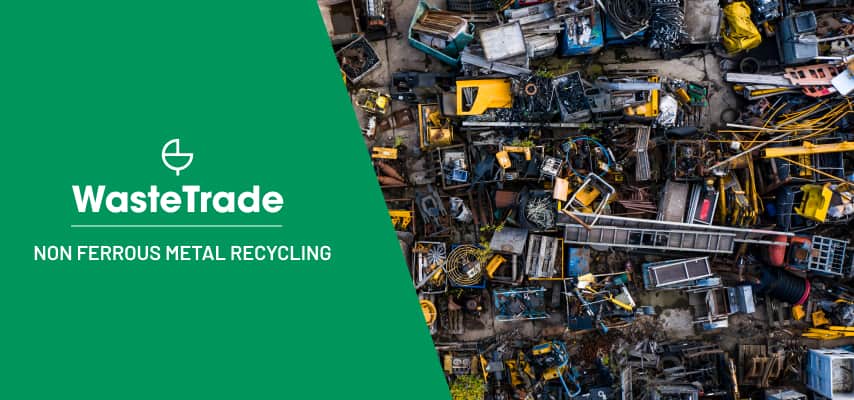Non Ferrous Metal Recycling

What Are Non-Ferrous Metals?
Non-ferrous metals are metals that do not contain iron. These metals are generally more resistant to corrosion than ferrous metals, making them ideal for use in various industries, such as construction, automotive, and electrical. Non-ferrous metals are also lightweight and have a high strength-to-weight ratio, making them ideal for applications where weight is a critical factor.
The Process of Non-Ferrous Metal Recycling

Non-ferrous metal recycling involves several stages, including collection, sorting, processing, and refining. The first stage is collection, where metal waste is gathered from various sources, such as construction sites, manufacturing plants, and households. Once collected, the metal waste is transported to a recycling facility, where it undergoes sorting.
The sorting stage involves separating different types of metals based on their properties. This is essential as different metals require different processes for recycling. Once the metals are sorted, they undergo processing, which involves cleaning, shredding, and melting the metal waste.
The molten metal is then cast into new shapes or processed into new products. The final stage of the process is refining, where impurities are removed from the metal to improve its quality. The refined metal is then sold to manufacturers, who use it to produce new products.
List of Non-Ferrous Metals

The following is a list of commonly recycled non-ferrous metals:
Copper – one of the most commonly recycled metals due to its high value and demand
Aluminium – a lightweight metal that is widely used in construction, automotive, and aerospace industries
Brass – a copper-zinc alloy that is commonly used in plumbing fixtures, musical instruments, and decorative items
Lead – a heavy metal that is commonly used in batteries, roofing, and radiation shielding
Zinc – a metal that is commonly used in galvanising steel, die-casting, and in the production of alloys
Nickel – a hard, silver-white metal that is commonly used in batteries, coins, and stainless steel production
Tin – a silvery-white metal that is commonly used in the production of tinplate and solder alloys
Conclusion
Non-ferrous metal recycling is an essential part of waste management, as it offers significant environmental and economic benefits. Non-ferrous metals can be recycled repeatedly without losing their quality, making them ideal for recycling. Recycling non-ferrous metals reduces the need for mining and the energy required to extract and refine raw materials. By recycling non-ferrous metals, we can create a more sustainable and circular economy.
Businesses that produce non-ferrous metal waste can use WasteTrade to find reputable and profitable recyclers for their waste. WasteTrade connects waste generators with recyclers who offer competitive prices for non-ferrous metal waste. By using WasteTrade, businesses can access a network of recycling solutions and ensure that their waste is being recycled responsibly and sustainably. WasteTrade also ensures that all recyclers comply with environmental regulations and health and safety standards, giving businesses peace of mind that their waste is being handled ethically and responsibly. With WasteTrade, businesses can contribute to a circular economy while also benefiting financially.
